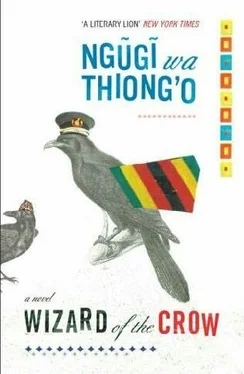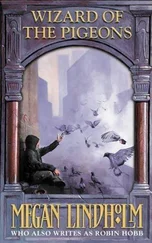All over the country, people were buffeted by the winds of rumor, disinformation, and even some facts as they tried to make sense of what had happened.
Machokali’s chauffeur and his bodyguard said that they had left the minister behind at the State House at his own request; that he had sent them a message with one of the guards excusing them for the night because he and the Ruler had many matters to settle and that on finishing state business he would find his way home. But they could not give the name of the guard who had brought the message. People would ask, How did they know that the message had really come from the minister himself r
Machokali’s wife said that her husband had not come home that night or the following night and she had not heard from him, and this was unusual because he always kept in touch by phone. He had not gone to work on the morning of his disappearance and had not called his secretary.
It was only after seven days of rumors and counterrumors that the government had issued a statement acknowledging that Machokali, the Minister for Foreign Affairs, was missing. If anybody had information about the minister’s whereabouts or the mystery of his disappearance, he or she should report it to the nearest police station. Some people claimed that the government issued the statement only after many world leaders had voiced concern over the disappearance of the minister.
After another week, the government issued a terse statement saying that according to an ongoing government inquiry, A Secret Report on Acts of Treason, Machokali was implicated in a plot to overthrow the legal government of the Republic of Aburlria. The statement strongly hinted that the minister might have fled to a foreign country to hide his shame or might even have committed suicide once he got wind of the inquiry. The statement called on any state considering giving the minister political asylum to let the Aburlrian government know so that it could start extradition proceedings. The government had a few questions it hoped the minister could shed some light on. The statement was signed by Big Ben Mambo, Minister of Information, heretofore known as a supporter of Machokali. There were a few, even then, who whispered that the missing minister was somewhere within the walls of the State House, that his bones were fortifying the walls of the famous temple of the spirits, that there were times when the Buler was heard laughing triumphantly, saying, So you thought you were more cunning than me, just because of your degrees and the support of London and Washington… A cunning robber may well meet his match in a stealthy thief… Go tell your friends that I am not to be trifled with.
“True! Haki ya Mungu! Sitting there, outside the chamber, alone, without anybody with whom I could share my feelings, I posed similar questions to myself, but it was hard. Imagine what it means for a person to wrestle with his own thoughts without a soul to help him deal with the numerous whys and hows in his mind or help him sort out fact from fiction? Imagine brooding like this day in, day out, in light and darkness!”
What A.G. kept on reviewing in his mind was the two-line letter that the Wizard of the Crow had written to Machokali. He grew obsessed with one phrase: Take care. A.G. recalled what the Wizard of the Crow had spluttered in a drunken haze that day at the bar: My note was addressed to one person and one person only, Machokali, the Minister for Foreigners, I mean, Affairs. And I just wanted to tell him… Take care of yourself.
“True! Haki ya Mungu, the Wizard of the Crow had foreseen all this!” A.G. would shout when later he told the story of those times.
But what exactly had the wizard foreseen? The more he turned the matter over in his head, the more A.G. became inclined to dismiss the thought that the Wizard of the Crow was the author of the minister’s disappearance. The unthinkable began to force itself on him, tentatively implicating the Ruler. Before the disappearance, A.G. did not see the contradiction between his belief in the Ruler, God, and the Wizard of the Crow, seeing the three entities as embodying ideals somehow beneficial to humans. But now for the first time he had serious doubts. So although he would have liked to have company, he stopped wishing for any, for how could he share these thoughts? I would rather struggle with my doubts, he said to himself, and keep any answers to myself. Perhaps, after all, this was the work of Ma-chokali’s archrival, Sikiokuu, the Minister of State.
“The strange thing was that while my brain was muddled with numerous questions, I always recalled with clarity Machokali’s raising his hand and waving to me as if to say good-bye. Who would be disappeared next? Only the Wizard of the Crow knew for sure, and he was saying nothing but the word if.”
A.G.’s hope of finding out lay in the restoration of the voice of the Wizard of the Crow.
Sikiokuu, who did not know that the sorcerer had been stricken with the malady of words, anxiously awaited what he would say. Instead of joy at the disappearance of his nemesis, Sikiokuu was shaken when he learned that the minister was missing. He recalled their last time together at the State House. After the three policemen had departed, Sikiokuu was first to leave; the Ruler, Machokali, Tajirika, and Kaniürü staying behind. What happened after he left? he now wondered. Were Tajirika and Kaniürü connected somehow to the disappearance of the minister?
However much he wanted to inquire of them, he thought the better of it. If Machokali was murdered, had Tajirika or Kaniürü been entrusted with the deed? Sikiokuu started worrying about himself. What if the Wizard of the Crow had told the Ruler of Sikiokuu’s ambition, which he had divined? The more Sikiokuu thought about it, the more he too appeared to be in danger. Should he flee to another country? Or walk into a Western embassy in Eldares and apply for political asylum? But how would he explain the danger facing him?
And so he grew desperate to know what the Wizard of the Crow had said. He tried to consult with his former subordinates, Njoya and Kahiga, to buy information from them, but they were always in the State House.
He was wallowing in these anxieties when he received a summons to the State House, his first invitation since the reported disappearance. Expecting the worst, he was relieved to learn that he was only being asked to abridge the original Report on Acts of Treason and amend it to link Machokali with forming queues, part of his alleged plan to overthrow the legitimate government of the Ruler.
When later his summary became the basis of the government statement implicating Machokali in plans for a coup d’etat, Sikiokuu said to himself: So it was the report on treason that had led Machokali into trouble? He felt a little guilty because he knew that a lot of the evidence and citations in the report were pure fabrications extracted from Tajirika through torture. But the relief and guilt gave way to outrage when he realized that the report might have contributed not only to Tajirika’s governorship of the Central Bank but also to his even more enviable position of always being next to the ears of the Ruler. Tajirika could say anything he wanted to the Ruler. What was to prevent him from whispering words against Sikiokuu, who had tortured him? If Kaniürü, his ex-protege, could turn against him, why not Tajirika, his ex-prisoner? Best to brace himself for the wrath to come! If the Ruler could do what he did to Rachael, his own wife, confine her to a golden prison for years and years without mercy, no amount of loyal service would restrain him.
So in those days Sikiokuu went through emotional highs and lows, but mostly lows because of the closeness of the Wizard of the Crow, Tajirika, and Kaniürü to the Ruler. Of the three, the one who terrified him most was the wizard, for he alone knew of Sikiokuu’s secret ambition.
Читать дальше












